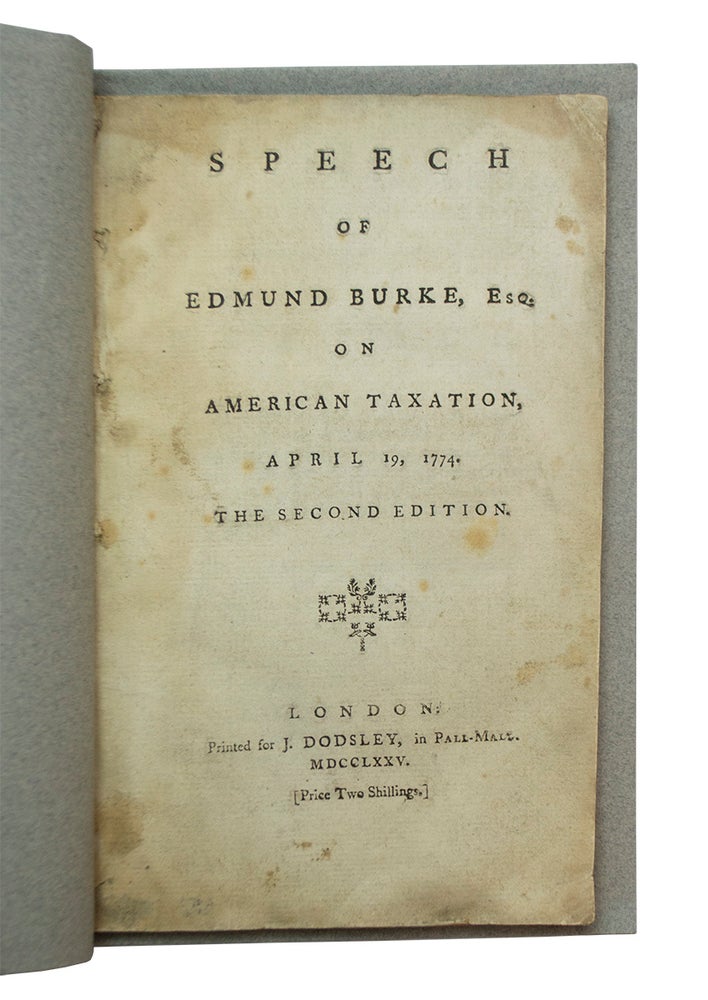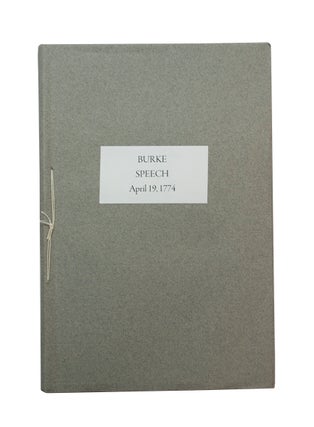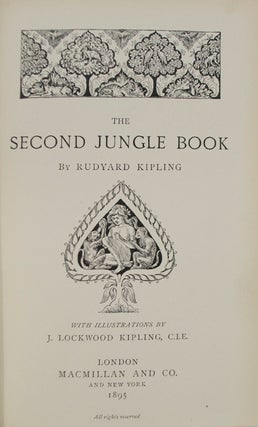Burke's Famous Speech Supporting the Repeal of the Tea Tax
Speech of Edmund Burke, Esq. on American Taxation, April 19, 1774. The second edition.
London: Printed for J. Dodsley, 1775.
Full Description:
BURKE, Edmund. Speech of Edmund Burke, Esq. on American Taxation, April 19, 1774. The second edition. London: Printed for J. Dodsley, 1775.
Second edition. Octavo (8 3/16 x 5 1/8 inches; 208 x 130 mm). [i]-iv, 5-96 pp.
Disbound but stitched together in newer paper wrappers. Printed paper label on front wrapper. Some minor soiling and toning, mainly to title-page. Leaf F7 trimmed close at fore-edge, just grazing a few letters but with no loss. Overall very good.
"On American Taxation' was a speech given by Edmund Burke in the British House of Commons on April 19, 1774, advocating the full repeal of the Townshend Revenue Act of 1767. Parliament had previously repealed five of the six duties of this revenue tax on the American colonies, but the tax on tea remained. The speech was given during the debates on the Coercive Acts, when Rose Fuller proposed that the Townshend duty on tea be repealed to decrease resistance to the new acts. Burke's speech was in support of this motion." (Wikipedia).
"Burke's imperial thinking at this time is encapsulated in his two great American speeches. 'Taxation', which had been delivered on 19 April 1774, was not published until January 1775. 'Conciliation' was delivered on 22 March 1775 and published in May. In each he argued that the benefits of Anglo-American co-operation far outweighed any conceivable advantages to be derived from an insistence on the right to tax America. His own measures would have been the repeal of offending legislation, an abandonment of all attempts at taxation, and a return to what he took to be the benign mildness of whig government of the colonies. This made no appeal to a Commons bent on forcing to an issue the question of Britain's authority to tax. But Burke's exposition marked out important ground. His concept of empire was one of communities bound in partnership. Americans were Englishmen by another name, imbued with a strong sense of their ancient inheritance. 'An Englishman is the unfittest person on earth, to argue another Englishman into slavery'" (Oxford DNB).
Goldsmiths' 11281. Howes B980. Kress 7081. Sabin 9295.
HBS 68927.
$600.
Price: $600.00
Item #68927



